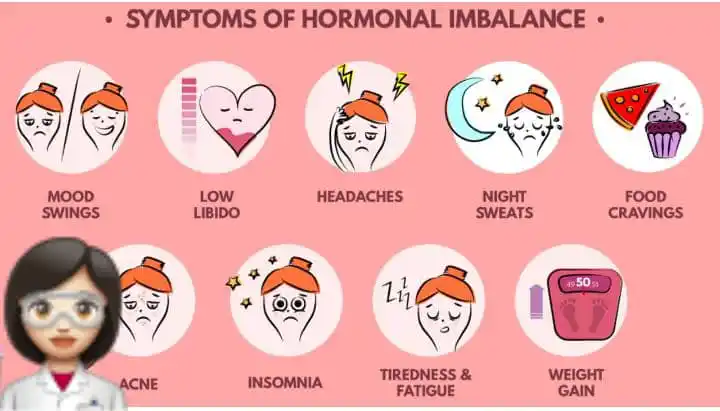
Selfcare Sanctuary🏪
June 6, 2025 at 12:36 PM
✅𝐖𝐡𝐚𝐭 𝐢𝐭 𝐌𝐞𝐚𝐧𝐬 𝐭𝐨 𝐇𝐚𝐯𝐞 𝐇𝐨𝐫𝐦𝐨𝐧𝐚𝐥 𝐈𝐦𝐛𝐚𝐥𝐚𝐧𝐜𝐞 ❌
A hormonal imbalance is a condition in which there is an irregularity or disturbance in the amounts or functioning of hormones in the body. The endocrine system produces hormones, which are chemical messengers that are essential for controlling a variety of body processes.
When there is a hormonal imbalance, it indicates that either the levels of specific hormones are too high or too low, or that their typical interactions and feedback systems have changed. Both men and women can experience hormonal abnormalities, which can happen at any age.
Hormonal imbalances may have a variety of causes, such as:
Adolescence: Hormonal imbalances brought on by puberty can result in mood swings, acne, and other physical changes.
Menopause and perimenopause: Women experience hormonal shifts during menopause, leading to symptoms such as hot flashes, mood changes, and irregular periods.
Pregnancy: Pregnancy involves significant hormonal changes, and imbalances can contribute to symptoms like fatigue, mood swings, and changes in appetite.
Thyroid disorders: Conditions like hypothyroidism (underactive thyroid) or hyperthyroidism (overactive thyroid) can disrupt the balance of thyroid hormones, affecting metabolism and overall well-being.
Polycystic ovary syndrome (PCOS): PCOS is a common hormonal disorder in women, characterized by imbalances in sex hormones, leading to irregular periods, ovarian cysts, and other symptoms.
Adrenal disorders: Conditions affecting the adrenal glands, such as Cushing's syndrome or Addison's disease, can cause hormonal imbalances affecting cortisol production.
Diabetes: Insulin is a hormone responsible for regulating blood sugar levels, and imbalances can occur in individuals with diabetes.
Symptoms of hormonal imbalance can vary depending on the specific hormones involved and the underlying cause. Common symptoms include irregular or heavy periods, mood swings, weight gain or weight loss, fatigue, changes in libido, hair loss, acne, and sleep disturbances.
Treatment for hormonal imbalances depends on the underlying cause. It may involve lifestyle changes, hormone replacement therapy, medications, or surgical interventions, depending on the specific condition and severity.
If you suspect you have a hormonal imbalance, it's important to consult a healthcare professional who can provide a proper advice and recommend appropriate treatment options.
Talk to Mr Muchemwa
